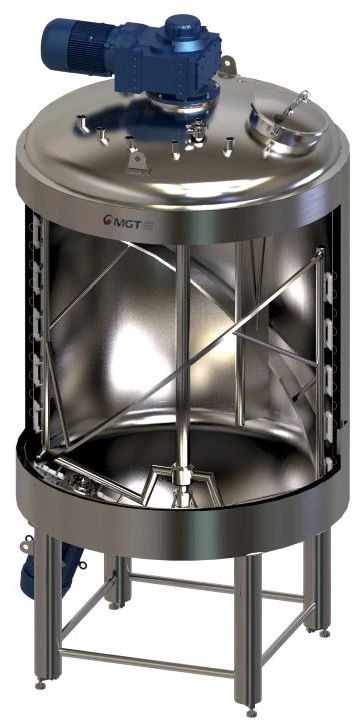Most of us have come into contact with plastic storage vessels in one form or another. Water bottles, soda bottles, and peanut butter jars are all examples of common plastic storage vessels. What many people don’t know is that these vessels can be customized to meet a variety of needs, and they can be made out of different types of plastic that are compatible with different chemicals.
Plastic storage vessels are used in a variety of settings, from homes to businesses. They can be customized to meet the needs of the user, and they come in a variety of shapes and sizes. The most common type of plastic used for storage vessels is polyethylene terephthalate (PET), but there are other types of plastic that can be used as well.
When choosing a plastic storage vessel, it’s important to consider the compatibility of the plastic with the chemicals that will be stored in it. Some plastics are more resistant to certain chemicals than others. For example, polyethylene is a type of plastic that is compatible with many chemicals, but it is not compatible with all chemicals. It’s important to choose a plastic that is compatible with the chemicals that will be stored in it in order to avoid potential problems.
Glass vs. plastic: which is better for storing chemicals?
There are many factors to consider when deciding whether to store chemicals in glass or plastic containers. Some important factors include the chemical compatibility of the material, the possibility of leaching, and the weight and durability of the container.
Glass is a popular choice for storing chemicals because it is inert and does not interact with most chemicals. This means that there is no risk of the container leaching chemicals into the stored product. Glass is also durable and can withstand high temperatures. However, glass is a heavy material, which can make it difficult to transport and handle.
Plastic is another popular choice for storing chemicals. Plastic containers are usually lighter than glass, making them easier to transport and handle. They are also less likely to break if dropped. However, some plastics can interact with chemicals, leading to leaching. Plastics are also not as heat-resistant as glass, so they may not be suitable for storing chemicals that need to be kept at high temperatures.
Benefits of plastic storage vessels
There are many benefits to using Plastic Storage Vessels instead of other materials. One of the main benefits is that plastic is much lighter than metal, making it easier to transport and store. Plastic is also generally more durable than other materials, meaning it will last longer and is less likely to break. Plastic vessels are also much easier to clean than other materials, and they are often dishwasher-safe. Finally, plastic storage vessels are often cheaper than other materials, making them a great option for those on a budget.
Different types of plastic used in storage vessels
The three main types of plastic used in the manufacture of storage vessels are high-density polyethylene (HDPE), polypropylene (PP), and polyvinyl chloride (PVC). HDPE is a strong, durable plastic that is resistant to many chemicals. PP is a lightweight plastic that is also resistant to many chemicals. PVC is a strong, durable plastic that is resistant to most acids, alkalis, and oils.
Chemical compatibility of plastic storage vessels
When it comes to compatibility, plastic storage vessels have an advantage over their metal counterparts. This is because plastic is less reactive to chemicals than metal, and as a result, is less likely to cause contamination. In addition, plastic storage vessels can be customized to meet the specific needs of a particular application. For example, they can be designed to be compatible with a wide range of chemicals, or they can be made to resist the effects of certain chemicals.
When it comes to resistance, some plastics are more resistant to certain chemicals than others. For example, polyethylene is resistant to a wide range of chemicals, including acids, alkalis, and solvents. Similarly, polypropylene is resistant to a variety of chemicals, including acids and bases. Finally, fluoropolymers are resistant to a variety of chemicals, including acids, bases, and organic solvents.
Benefits of using plastic storage vessels
When it comes to storing chemicals, there are a variety of benefits that come with using plastic storage vessels as opposed to other materials. For one, plastic is a relatively inexpensive material, so it won’t break the bank to store chemicals in plastic vessels. Additionally, plastic is much lighter than glass or metal, so it’s easier to transport and move around.
Furthermore, plastic is pretty resistant to damage and chemicals, so it’s less likely that the chemicals will leak out or be contaminated. And if there are any accidents, plastic is much less likely to break and cause injuries than other materials. Overall, using plastic storage vessels is a smart and safe choice for storing chemicals.
Custom plastic storage vessels offer a number of advantages over more traditional storage options. They can be customized to meet the specific needs of your application, and they are compatible with a wide range of chemicals. These factors make custom plastic storage vessels an ideal option for many industrial and commercial applications.
